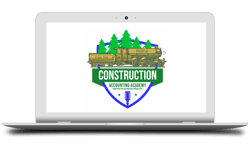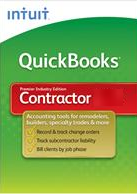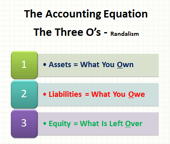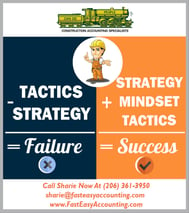
The Importance of Business Valuation
Business valuation isn't just for companies preparing for sale or investment. It's a powerful tool that helps you understand your business's health and identify areas for improvement. A valuation gives you insight into whether your construction business is structured for long-term sustainability or is at risk of operational inefficiencies, market challenges, or other pitfalls.
Think of it this way: knowing your business's valuation is like running a health check. It gives you a snapshot of financial health, considers external factors, and ensures your company is ready to tackle challenges or opportunities that come your way. If valuation isn't already part of your business planning, it's time to make it one.
Traditional Valuation Metrics
Traditionally, business valuation has relied heavily on financial metrics. Two commonly known approaches include:
Earnings multipliers
This method involves multiplying a business's annual revenue or profits by a standard industry-specific figure.
Discounted Cash Flow (DCF) Analysis
DCF looks at a business's projected future cash flows and discounts them to present value, providing an estimate that accounts for risk and time. While highly detailed, this method depends heavily on accurate forecasts.
These approaches are undoubtedly helpful but don't tell the whole story. A construction business can be profitable yet fail to secure a high valuation due to overlooked non-financial factors.
Beyond Profits: The non-financial factors that matter
While profits are essential, they're only the beginning of the valuation equation. Non-financial factors can significantly influence how much your business is worth:
1. Market Demand and Competitive Landscape
It's not just about how much profit you generate today—it's about your position in the market. Is the demand for your product or service growing, or is the market becoming saturated? Are competitors innovating faster than you? A future-proof business consistently assesses market trends and adapts to stay relevant.
Pro Tip: Conduct regular SWOT (Strengths, Weaknesses, Opportunities, and Threats) analysis to understand your edge in the market.
2. Operational Risks
Operational risks can make the most profitable contracting business unattractive to potential buyers or investors. For example:
- Does the business rely heavily on an individual owner, a single key employee, or one major customer?
- Are there documented systems and processes, or does the business suffer from inefficiencies?
Think of these risks as red flags that could threaten scalability and sustainability.
3. Reputation and Brand Image
Your brand's reputation isn't just about avoiding bad press—it's a key driver of trust among customers, clients, and partners. Businesses with a loyal customer base and a positive reputation often command higher valuations.
Real-Life Example: A one-person remodeling company with a loyal local following may receive a higher valuation than a larger one with profits but poor customer reviews.
4. Innovation and Adaptability
How well does your business innovate? Construction businesses that embrace new technologies and methods are typically more resilient. Failure to adapt to changing technologies or market dynamics can cause even profitable enterprises to stall. Businesses that thrive on creativity invest in Research and Development, are ahead of the curve, and demonstrate resilience, which adds immense value during valuation.
Key Question: Is your company actively curious about emerging trends and technologies?
5. Legal and Regulatory Compliance
Compliance isn't just about avoiding lawsuits—it's about showing that your business operates responsibly. Construction companies must comply with a myriad of regulations. A solid compliance record can improve a company's valuation by reducing risks related to potential lawsuits or fines. Demonstrating responsible operations assures buyers that your business is trustworthy.
6. Team Strength and Cohesion
The quality and stability of your workforce can influence valuation. A skilled, experienced, and well-coordinated team enhances productivity and project delivery, making the business more attractive to potential investors or buyers. High employee turnover can signal underlying issues and be a red flag to prospective investors.
Warning Sign: Frequent employee turnover can signal a toxic workplace culture, directly impacting valuation.
Strategies for maximizing business value
To increase valuation, focus on both profitability and these often-overlooked factors:
Diversify revenue streams: Reduce reliance on a single product, service, or client to decrease operational risk.
Document processes: Streamline workflows and document systems to make the business more scalable.
Build a lasting brand: Invest in customer experience, brand identity, and online presence. A strong brand pays dividends in terms of valuation.
Foster a strong team: To retain top talent, provide training, career development opportunities, and a positive workplace culture.
Stay innovative: Review and refine your business model regularly to meet changing market needs.
The role of innovation, compliance, and team strength
True innovation, regulatory compliance, and a skilled team create a synergy that elevates your business value. These three pillars foster trust and sustainability:
- Innovation keeps you competitive.
- Compliance helps avoid costly legal issues.
- Team strength ensures the knowledge and talent needed for long-term growth.
Final thoughts
Unlock your business's actual value.
Valuing a construction business encompasses much more than simply analyzing profits. To truly understand your company's worth, consider financial and non-financial factors. Focusing on market position, operational efficiency, and innovation can enhance your company's valuation and ensure long-term success in the competitive construction industry.
Valuing a business is never just about profits. Understanding traditional metrics and exploring non-financial factors can position you for long-term success. Whether you're gearing up to sell or want to ensure your construction business thrives, a balanced approach is key.
Want advice to boost your business value? Contact us. We'll help you create a plan tailored to your needs.
About The Author:
![]() Sharie DeHart, QPA, is the co-founder of Business Consulting And Accounting in Lynnwood, Washington. She is the leading expert in managing outsourced construction bookkeeping and accounting services companies and cash management accounting for small construction companies across the USA. She encourages Contractors and Construction Company Owners to stay current on their tax obligations and offers insights on managing the remaining cash flow to operate and grow their construction company sales and profits so they can put more money in the bank. Call 1-800-361-1770 or sharie@fasteasyaccounting.com
Sharie DeHart, QPA, is the co-founder of Business Consulting And Accounting in Lynnwood, Washington. She is the leading expert in managing outsourced construction bookkeeping and accounting services companies and cash management accounting for small construction companies across the USA. She encourages Contractors and Construction Company Owners to stay current on their tax obligations and offers insights on managing the remaining cash flow to operate and grow their construction company sales and profits so they can put more money in the bank. Call 1-800-361-1770 or sharie@fasteasyaccounting.com
OUTSOURCED ACCOUNTING FOR
THE BUSY CONTRACTOR
IN A MOBILE ENVIRONMENT
 |
 |
 |
 |
Download the Contractors APP today from the App Store or Android Store
Access Code: FEAHEROS
Click here to download the App on Android:
Click here to download the App on iOS:
Simply scan the QR code or search for ‘MyAccountants’ in the App Store and enter the Access code: FEAHEROS to utilize the powerful App features and capabilities, and benefit from having our Construction Accounting App at your fingertips, 24/7."
PS: Even if you are not a Construction Contractor you will find a plenty of benefits in the app so we invite you to download it too! It's Free so why not?




























